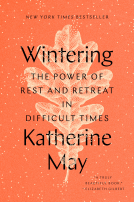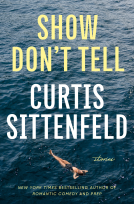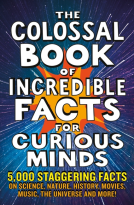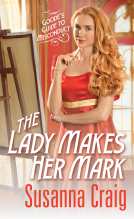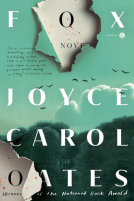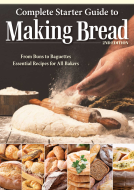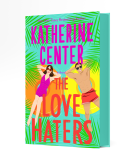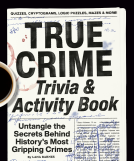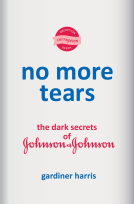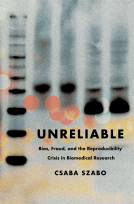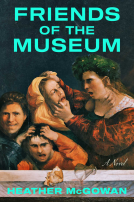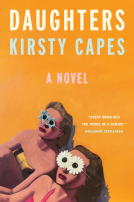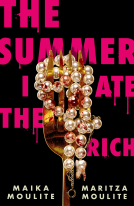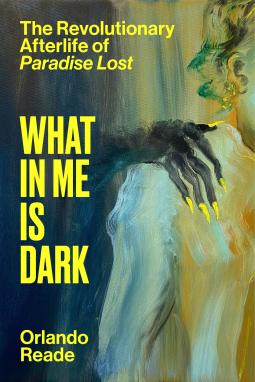
What in Me Is Dark
The Revolutionary Afterlife of Paradise Lost
by Orlando Reade
This title was previously available on NetGalley and is now archived.
Send NetGalley books directly to your Kindle or Kindle app
1
To read on a Kindle or Kindle app, please add kindle@netgalley.com as an approved email address to receive files in your Amazon account. Click here for step-by-step instructions.
2
Also find your Kindle email address within your Amazon account, and enter it here.
Pub Date Dec 10 2024 | Archive Date Dec 10 2024
Astra Publishing House | Astra House
Talking about this book? Use #WhatinMeIsDark #NetGalley. More hashtag tips!
Description
What in Me Is Dark tells the unlikely story of how Milton’s epic poem came to haunt political struggles over the past four centuries, including the many different, unexpected, often contradictory ways in which it has been read, interpreted, and appropriated through time and across the world, and to revolutionary ends. The book focuses on twelve readers—including Malcolm X, Thomas Jefferson, George Eliot, Hannah Arendt, and C.L.R James—whose lives demonstrate extraordinary and disturbing influence on the modern age.
Drawing from his own experiences teaching Paradise Lost in New Jersey prisons, English scholar Orlando Reade deftly investigates how the poem was read by people embedded in struggles against tyranny, slavery, colonialism, gender inequality, and capitalist exploitation. It is experimental nonfiction at its finest; rich literary analysis and social, cultural and political history are woven together to make a clarifying case for the undeniable impact of the poem.
Marketing Plan
MARKETING AND PUBLICITY PLANS • Cover reveal on Astra House social media • National media campaign including print, radio, podcasts, and online coverage • Pitch for feature stories, interviews, and profiles in major publications • Robust awards campaign • Targeted outreach to publications focused on literary classics, criticism, biographies, history, and radical politics • Academic outreach to English literature programs • Outreach to indie booksellers,
Available Editions
| EDITION | Other Format |
| ISBN | 9781662602795 |
| PRICE | $28.00 (USD) |
| PAGES | 288 |
Links
Available on NetGalley
Featured Reviews
I received an e-ARC of this book for review. TLDR; I loved it and will be getting my own copy when it hits the bookstore.
What in Me Is Dark enlivened the literature student in me. Both accessible and informative, this book takes a look at not just the political life of Paradise Lost, but also in the larger scope, at the way literature isn't just a thing we create, but something that actively creates us as well. From Milton's own role in political upheaval to Malcolm X, Paradise Lost has shaped history more significantly than I previously thought.
The most impactful part of this book to me were the conversations and observations from those who read Paradise Lost while incarcerated. The very first glimpse we get at Reade's time teaching in prison offers an incredible insight into the rhythm of Paradise Lost, and it genuinely took my breath away. In fact, my only real complaint with this book is that we didn't get to hear more from these folks. I'd read another 200+ pages sitting in on these classes.
Literature as a tool for change is one of my areas of passionate interest, and this book fed that interest well. I will be pre-ordering my own copy and reading it again when it's released.
"What in Me Is Dark" truly reignited my passion for literature. This book not only delves into the political landscape of Paradise Lost, but it also explores how literature shapes our lives as much as we shape it. It’s fascinating to see how Milton’s work influenced political turmoil, and how Paradise Lost has played a surprisingly significant role in history.
What really struck a chord with me were the insights from those who read Paradise Lost while incarcerated. The initial look into Reade’s experiences teaching in prison was nothing short of breathtaking. The way the book captures the rhythm and impact of Paradise Lost through these personal stories is incredible. If there’s one downside, it’s that I wanted even more of these powerful reflections. I'd happily read another 200 pages of these prison classroom discussions!
 Reviewer 1492517
Reviewer 1492517
As an academic, I really enjoyed this book and seeing the effect Milton's work has had on historical figures and history at large. While I think this book is full of interesting information and analysis, I'm not sure it is written in a very accessible format for non academics or people who are not used to reading historical research. That being said, the connections Reade make in What In Me is Dark draw interesting parallels to religious and sociological themes. I think this is a good read for history nerds, theological questioners, and fans of Paradise Lost. The work still remains relevant after centuries and has impacted major leaders, making it into a transformed manifesto that resonates with many.
 Reviewer 942283
Reviewer 942283
This book analyses and chronologically tracks the way different authors/poets/political thinkers/leaders have engaged with Milton's original text, in varying degrees of ungovernability, alongside interpretations of selected extracts. The impact seems to go both ways: the reader imposes their own interpretation onto the text, resulting in the figure of Milton shapeshifting over the centuries, but the text also shapes and informs the reader's poetic sensibilities and the way they frame ongoing conflicts in their time.
The people whose relationships with Milton's works being examined here are:
- Samuel Johnson & Thomas Jefferson
- The Wordsworth siblings
- Jean Louis/ baron de Vastey's treatise during the Haitian Revolution
- Mary Wollstonecraft, George Eliot's 'Middlemarch'
- James Redpath and the slave uprising
- A parading, acting, ball-throwing society named 'The Mistick Krewe' which led to Mardi Gras
- Ezra Pound, T.S. Eliot, & Virginia Woolf
- Marx, Weber, & Hannah Arendt
- Malcolm X and the Nation of Islam
- C.L.R. James, Fidel Castro, & Frank Reynolds
- Philip K. Dick's 'Do Androids Dream of Electric Sheep' which was adapted into the film 'Blade Runner'
- Jordan Peterson's 'Maps of Meaning' and more recent right-wing controversy
Towards the end, the author brought up this idea of 'reading disobediently' against the author's original intentions, which might actually be better aligned to the overall message of the text—loving your fellow man means to allow them the freedom to make their own choices, even if they err.
'What in Me Is Dark' is a reading of Paradise Lost and an exceptional history of readings.
Milton's epic is a poem at seeming contradiction with itself: Lucifer, Evil incarnate, personifies the revolutionary ideals, which Milton championed, against a tyrannical contradictory God, which Milton extolled— is Satan to be identified with, or opposed? If he is wrong, is his charismatic figure to serve as advice by counterexample to those that want to shake the gates of Hell, or as caution to those that crowd behind the walls of Eden? If he is right, what to make of the fact that he is doomed? And what of that other fall, that of man? (What of woman?)
These are the question one can pose at/with/to/for/against/through Paradise Lost. Orlando Reade traces the readings of the makers of revolutions, of slaves and slave-holders, Hannah Arendt's radical forgiveness and rebirth, and Jordan Peterson's eclectic esoteric search for meaning. (While Reade does correctly identify why liberalism, with its root both in freedom and exclusion, may ultimately become reactionary, it is in this one respect that I find the book lacking – i.e. buying into Peterson's self-identification as a 'classical liberal'. There is, in comparison, dare I say, more liberal humanism in Heidegger's uncompromising assertion of the irreducible experience of the subject.) This is literary study that is profoundly interested with the effects of literature, a searching-out of practice in theory.
 Dan H, Educator
Dan H, Educator
Insightful reading and background of Paradise Lost, focusing on the political angles of the poem and it's influence and adaptation by various thinkers.
Orlando Reade’s "What in Me Is Dark" is an ambitious and deeply thought-provoking exploration of "Paradise Lost" as a revolutionary text. More than just a literary analysis, the book traces the unexpected and often contradictory ways John Milton’s epic has influenced political thinkers, social movements, and radical leaders across four centuries. From Thomas Jefferson and Mary Wollstonecraft to Malcolm X and C.L.R. James, Reade reveals how Milton’s poetry has been wielded in struggles against tyranny, slavery, colonialism, and oppression.
The book’s most compelling moments come from Reade’s own experiences teaching "Paradise Lost" in New Jersey prisons. The reflections of incarcerated readers offer some of the most powerful insights, demonstrating how literature, even centuries old, can still resonate deeply with those confronting systems of power and control. These sections alone make the book worth reading. The book as a whole is a masterclass in how literature shapes—and is shaped by—history. Reade challenges us to consider not just how "Paradise Lost" has been read, but how reading itself can be an act of defiance. For anyone interested in the intersection of literature, politics, and social change, "What in Me Is Dark" is a vital and rewarding read.
Thank you to the publishers and NetGalley for the opportunity to review a temporary digital ARC in exchange for an unbiased review.
Readers who liked this book also liked:
Nigel Henbest; Simon Brew; Sarah Tomley; Ken Okona-Mensah; Tom Parfitt; Trevor Davies; Chas Newkey-Burden
Entertainment & Pop Culture, Humor & Satire, Nonfiction (Adult)
